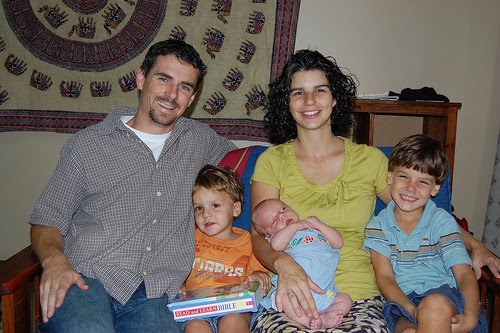Latest from Mwanza and Sukumaland (part one)...
Here is an excerpt from our teammates (and close friends), Jason and Emily Miller. Jason and Emily arrived in Mwanza in March, and we will work alongside them when we get to Mwanza in May.
This is part of their first newsletter home, and it provides much information about the current situation in Tanzania... as well as some glimpses into how we hope to work with churches to build relationships that empower emerging leadership. So here goes:
The Work
Recently, there has been famine in the rural areas. This has built up over the last year as the first rains did not come at all and the second rains were late. Everything was planted later and therefore will mature later, and any stores that someone might have had are gone. There are about 7000 Christians in the rural areas that we are trying to reach and organize for a food dispersal, which is one thing that has been occupying time for the past month.
These meetings have been very interesting. There are clusters of churches down to the south of Mwanza (about 70ish churches of about 5000) which have good leaders and generally are self-sufficient when it comes to daily matters. We young missionaries have had to keep quiet and listen as these older wiser leaders told us how to best implement a food distribution, even if it meant double the work for us. So in these meetings we have discussed every aspect of the distribution in great detail, because of the wisdom they have to offer and also because we are not the missionaries who planted those churches…those missionaries are old enough to have retired from the field. You see, we’re just the young pups. What a blessing to have these leader’s wisdom to light our paths…and to beat our egos into the ground.
On the other hand, the younger churches in the younger clusters to the east and west (about 30 churches and 2000 Christians) are in more of an asking stage. There is not nearly as much discussion (if any, no matter how much we encourage it). Here, the Christians ask questions and the missionaries provide answers. We’re pretty uncomfortable with that setup, but that’s the stage at which the younger churches stand. There are good leaders in these newer areas, just not enough that have the complete trust of the Christians to have good discussions.
Jason and Emily have some other insights on the transition from our culture to the Tanzanian culture. I will post them soon.
Here is an excerpt from our teammates (and close friends), Jason and Emily Miller. Jason and Emily arrived in Mwanza in March, and we will work alongside them when we get to Mwanza in May.
This is part of their first newsletter home, and it provides much information about the current situation in Tanzania... as well as some glimpses into how we hope to work with churches to build relationships that empower emerging leadership. So here goes:
The Work
Recently, there has been famine in the rural areas. This has built up over the last year as the first rains did not come at all and the second rains were late. Everything was planted later and therefore will mature later, and any stores that someone might have had are gone. There are about 7000 Christians in the rural areas that we are trying to reach and organize for a food dispersal, which is one thing that has been occupying time for the past month.
These meetings have been very interesting. There are clusters of churches down to the south of Mwanza (about 70ish churches of about 5000) which have good leaders and generally are self-sufficient when it comes to daily matters. We young missionaries have had to keep quiet and listen as these older wiser leaders told us how to best implement a food distribution, even if it meant double the work for us. So in these meetings we have discussed every aspect of the distribution in great detail, because of the wisdom they have to offer and also because we are not the missionaries who planted those churches…those missionaries are old enough to have retired from the field. You see, we’re just the young pups. What a blessing to have these leader’s wisdom to light our paths…and to beat our egos into the ground.
On the other hand, the younger churches in the younger clusters to the east and west (about 30 churches and 2000 Christians) are in more of an asking stage. There is not nearly as much discussion (if any, no matter how much we encourage it). Here, the Christians ask questions and the missionaries provide answers. We’re pretty uncomfortable with that setup, but that’s the stage at which the younger churches stand. There are good leaders in these newer areas, just not enough that have the complete trust of the Christians to have good discussions.
Jason and Emily have some other insights on the transition from our culture to the Tanzanian culture. I will post them soon.


0 Comments:
Post a Comment
<< Home